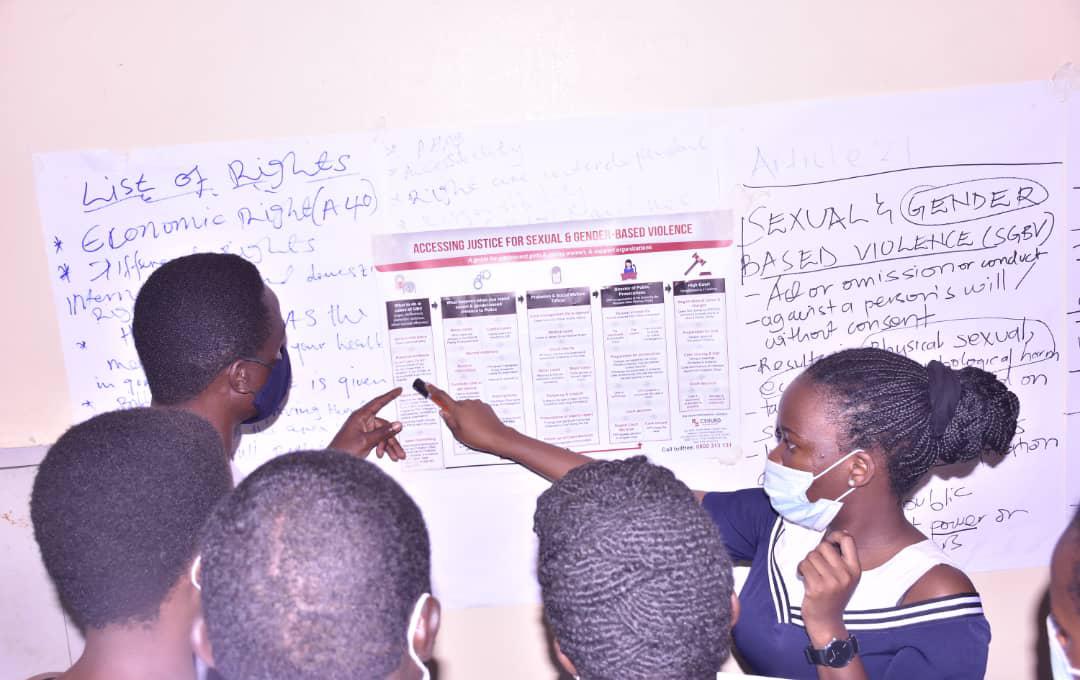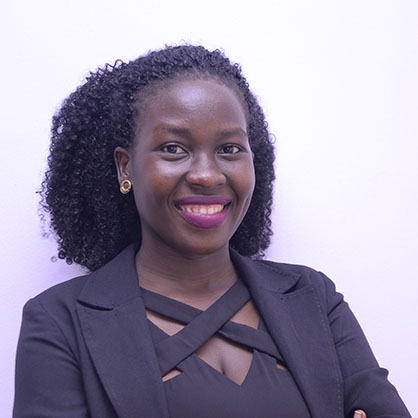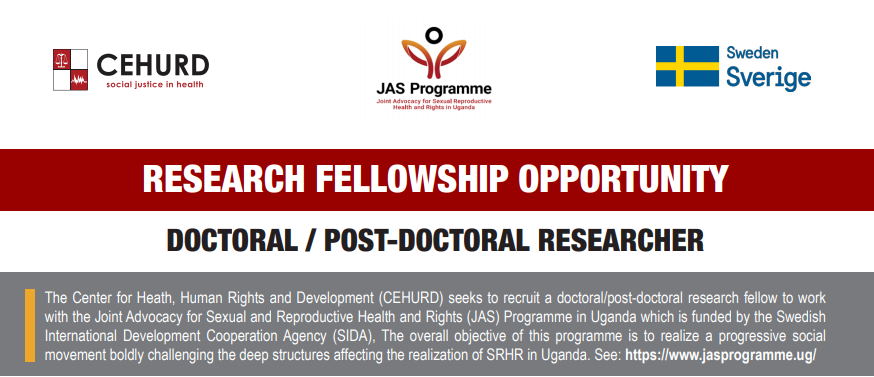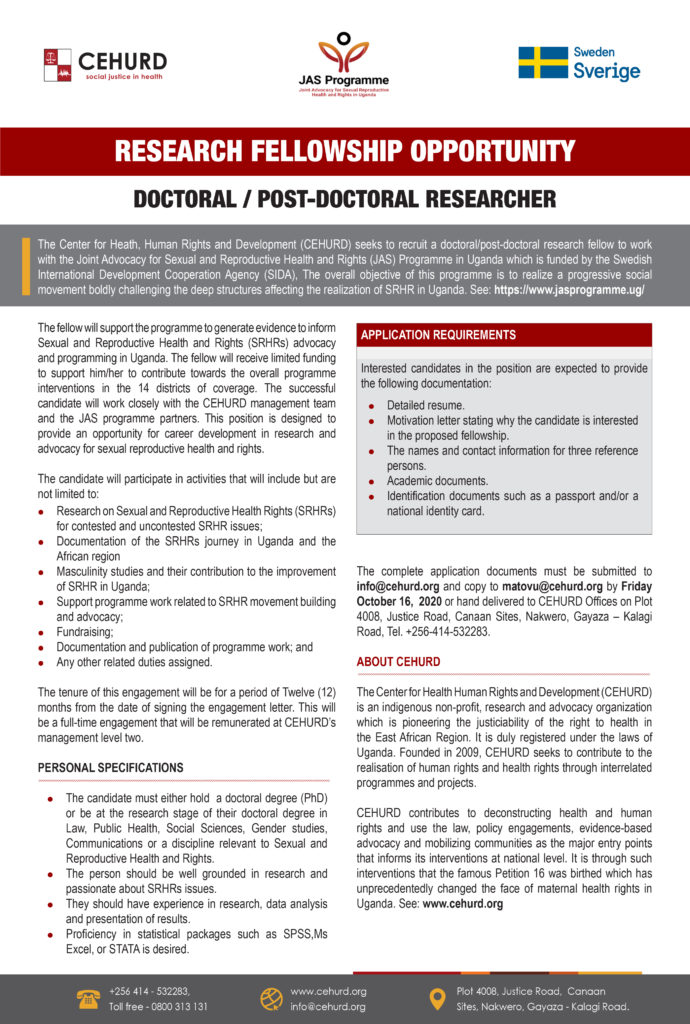By Gloria Laker – A programme officer at Center for Health, Human Rights and Development (CEHURD)
The COVID-19 pandemic has highlighted grave weaknesses in many countries’ protections for children, including inadequate health care and social protection systems, and the lack of emergency plans for large-scale school shutdowns. The choices which the Ugandan government makes now are crucial, not only to mitigate the worst harm of the pandemic, but also to benefit children over the long term.
Children are not the face of the COVID 19 pandemic since the majority of the affected and infected are the elderly but they risk being among its biggest victims. While they have thankfully been largely spared from the direct health effects of COVID-19 – at least to date – the crisis is having a profound effect on their wellbeing. The United Nations Children’s Emergency Fund (UNICEF) reports that all children, of all ages, and in all countries, are being affected, in particular by the socio-economic impacts and, in some cases, by mitigation measures that may inadvertently do more harm than good. This is a universal crisis and for some children, the impact will be lifelong.
For most children, home represents a source of security and safety but for a few children the opposite is tragically the case. Violence by caregivers is the most common form of violence experienced by children. Children are also often witnessing to domestic violence in a home, the rates of which are thought to have increased in many countries, as detailed in the policy brief of the UN on the impact of COVID-19 on women. [1]Such acts of violence are more likely to occur while families are confined at home and experiencing intense stress and anxiety. UNICEF reports that over 60 percent of all children worldwide live in countries where a full or partial lockdown is in place.
Spaces that can be accessed by children to report abuses have been closed. Lockdowns tragically also present an opportunity for child abusers to harm children. Being innocent and vulnerable, children rarely are in a position to report such heinous acts. social work and related legal and protective services for children are being suspended or scaled back at this time of increased need, children no longer have the same access to teachers to report incidents at home, -. Children’s reliance on online platforms for distance learning as stipulated by various schools and the government has also increased their risk of exposure to inappropriate content and online perpetrators that can have the opportunity to negatively groom children. Growing access to digitalization may magnify children’s vulnerability to harm. Children may become susceptible to all kinds of sexual content in the media.
In Uganda, just like in most countries, 95% of sexual abuse happens to a child by a person the child knows or has a familial relationship to. Due to the lock down, children are put in the confined space where the abusers have easy access to them far away from the prying eyes of the teachers and other support staff in schools. There is also likely going to be an increase of teenage pregnancies since children are at home and most are found idling at trading centers with no work to do to keep their minds busy.. Furthermore, the economic impact of COVID-19 in some communities may contribute to school dropouts since many parents will not afford to return their children to school after the lock-down, this may lead to increase in child marriages and also teenage pregnancy and child abuse.
Some of the devastating effects of COVID 19 may affect particularly vulnerable children who may become susceptible to trafficking and other exploitation, including sexual exploitation, forced begging, selling goods on the streets, and other child labor. Older children may drop out of school to try to support younger siblings.
Maud de Boer-Buquicchio, Special Rapporteur on the sale and sexual exploitation of children, and Najat Maalla M’jid, Special Representative on violence against children, issued the appeal, emphasising that parents, caregivers, service providers and law enforcement officials all need extra support to minimize the heightened risks to youngsters. This calls for recommendations like the following;
Governments should ensure that adequately staffed and equipped child protection services and law enforcement are available and accessible to all children. This includes toll-free 24-hours hotlines, free texting services, remote psychological and social services and mobile shelters for minors.
We should all make significant efforts to support frontline operators in the child protection services, neighborhood and community watchdogs and law enforcement”, the experts said, and equally, empower children to respond to the crisis through peer-to-peer initiatives. Governments should recognize SRHR services as essential in times of crisis, and remove barriers to access. This can be done through, for example, allowing remote access to contraception and abortion services via telemedicine and by allowing pharmacies to provide services.
Supply chains should prioritise SRH products. This should include contraception and menstrual health items, which are central to girls’ health and autonomy, and a key strategy in addressing child marriage. Adolescent girls should have access to relevant information about how to prevent and respond to the pandemic in ways they can understand, including in relation to regular hand washing and positive hygiene behaviours, including menstrual hygiene. Community sensitisation should continue as part of distance learning to ensure that parents, leaders and other community members are aware of the importance of education especially for the girl child. Adolescent girls (and boys) should continue to have access to comprehensive sexual education (CSE), SRHR information and referrals to services as part of distance learning while schools are closed.
Education and other support workers should receive training to ensure that they have the knowledge and skills needed to recognise and prevent violence against children, and the risk of child marriage, through safe referral practices and protection services.
When schools reopen, pregnant girls, married girls and young mothers should be fully supported to return to education. This might involve flexible learning, catch-up courses and accelerated learning opportunities. It may also involve checking school enrolment lists by heads of schools to identify and follow up with those girls who have not returned to school.
A version of this article was originally published in the Daily Monitor.









